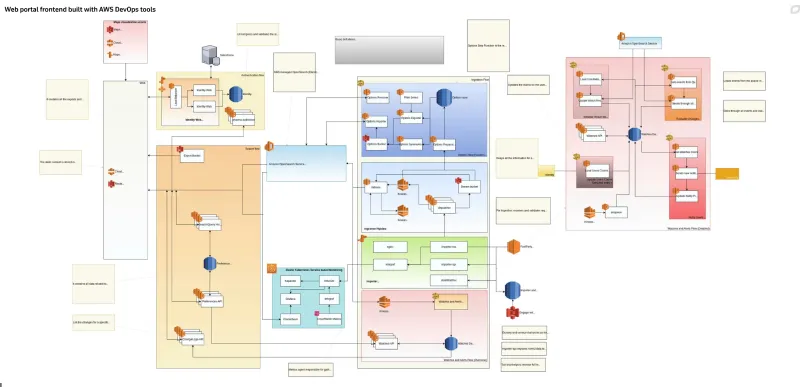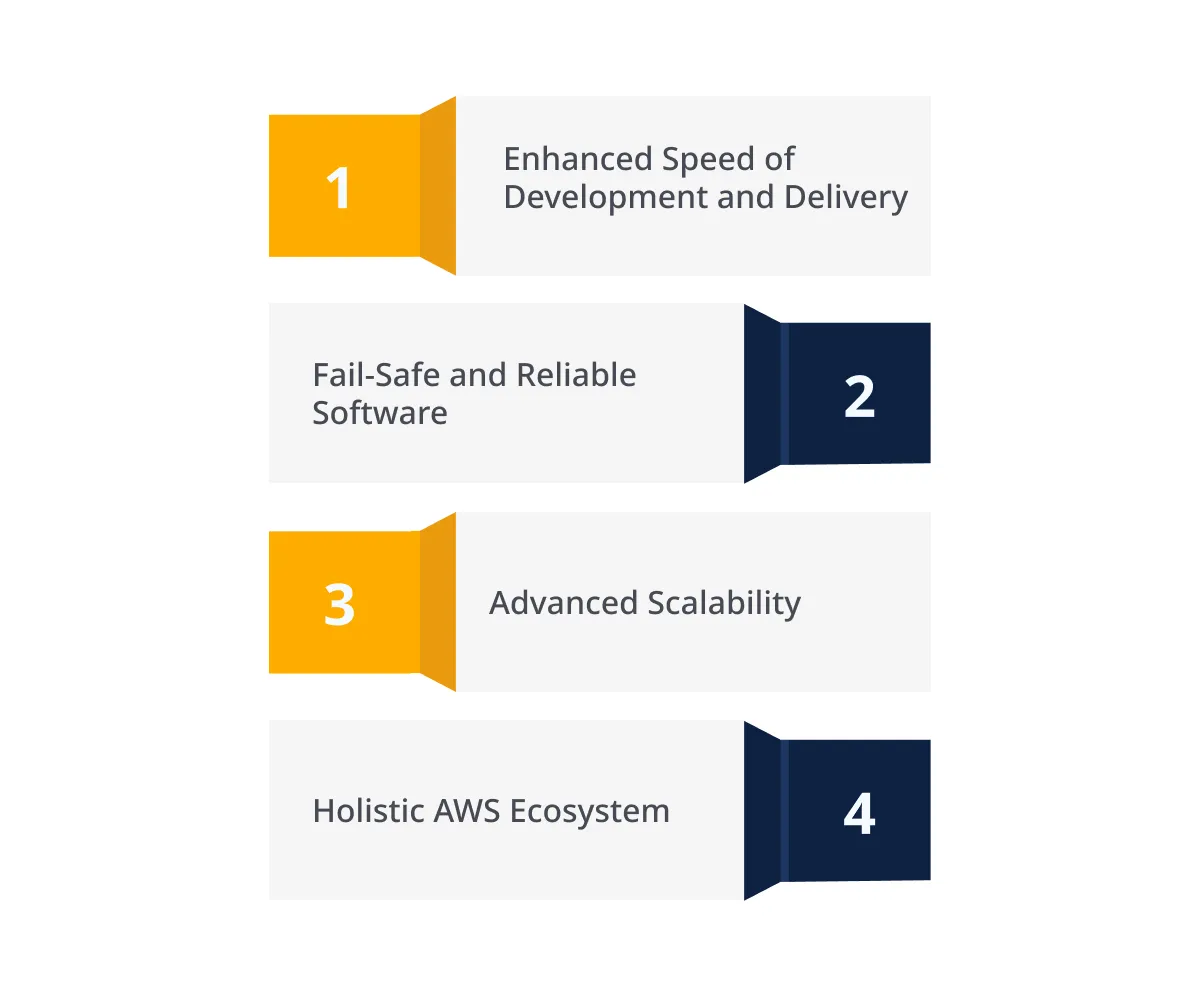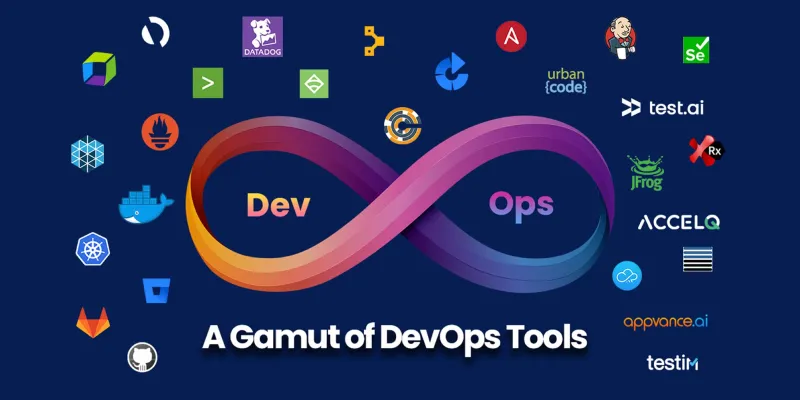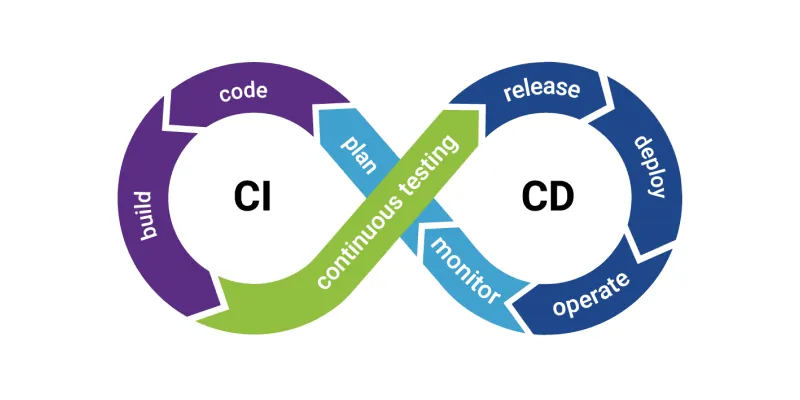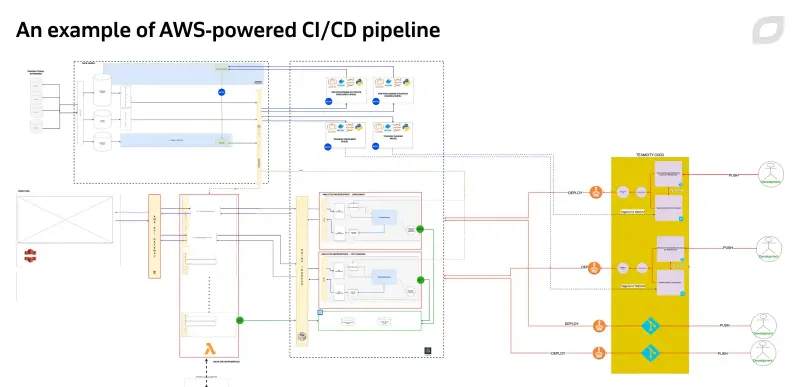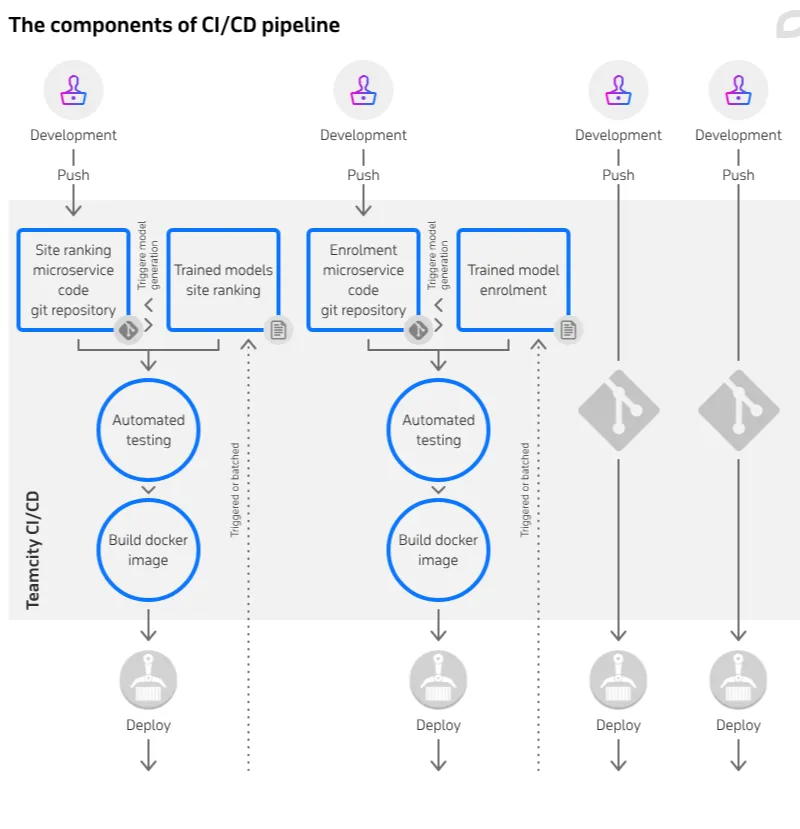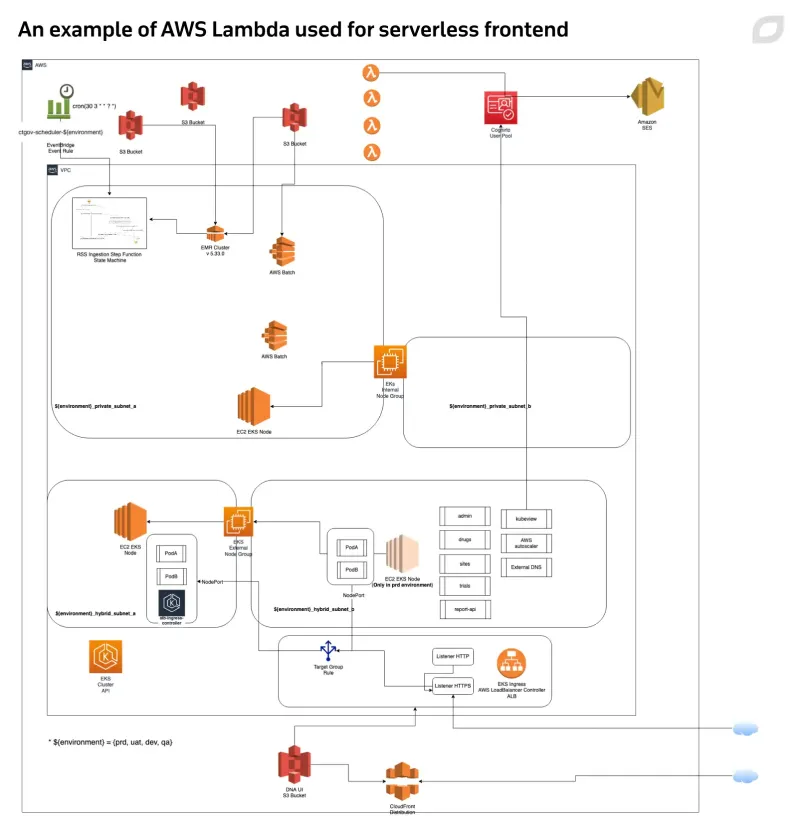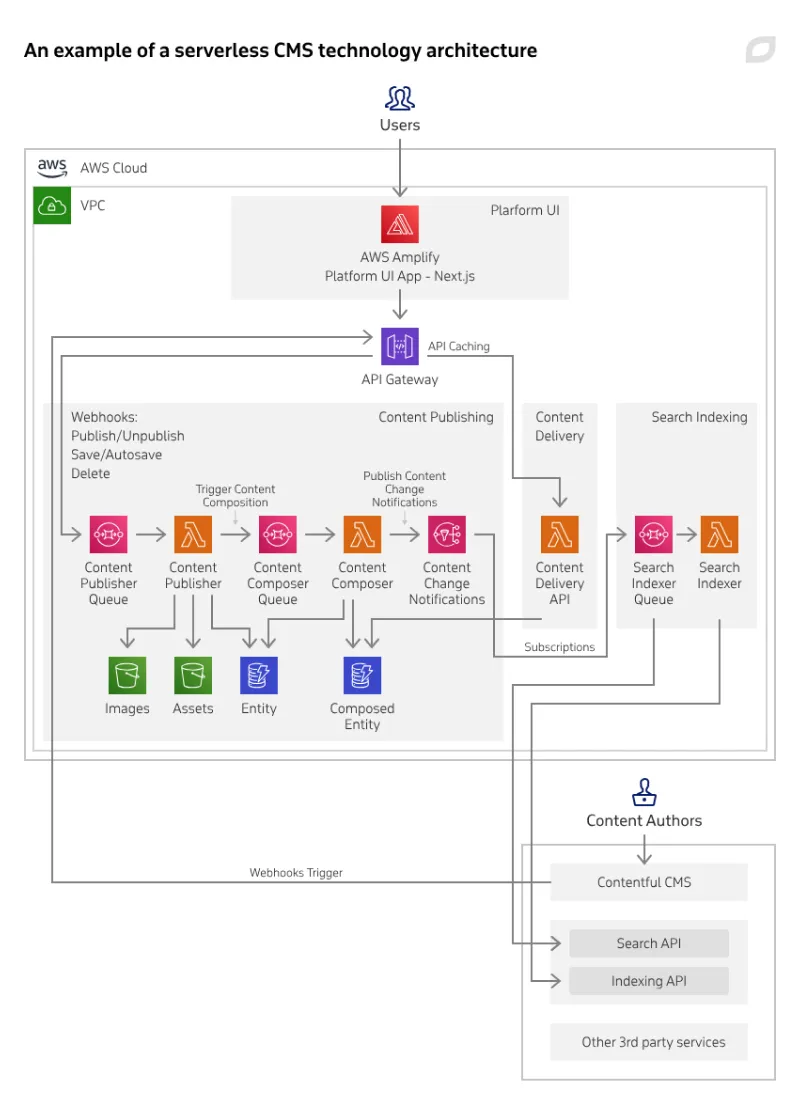Are you looking to revamp your software delivery process in 2024?
With the rapid pace of technology innovation, keeping up with the latest DevOps tools can be a challenge. Which ones are worth investing in and can bring real value to your organization?
In this weblog, we dive into the top AWS DevOps tools transforming modern software teams’ operations. We’ll discuss how tools like AWS CodePipeline, AWS CodeBuild, and AWS CodeDeploy can help you automate builds, testing, and deployments.
You’ll learn how AWS X-Ray and AWS CloudTrail can give you greater observability in your systems. And we’ll talk about how AWS CodeStar can serve as an all-in-one DevOps platform to streamline your workflows.
Whether you’re new to DevOps or a seasoned practitioner, this weblog will provide key insights and examples to help you deliver higher-quality software faster using AWS. Ready to take your DevOps game to the next level?
Read on!
Understanding AWS DevOps
AWS DevOps, part of Amazon’s approach to the global DevOps philosophy, converges development and operations, aligning with the traditional DevOps principles.
The focus remains on expediting the development life cycle, aiming to construct functional software systems swiftly.
AWS DevOps stands out by anchoring itself in practices, technologies, and tools exclusively provided by Amazon. These are seamlessly compatible with the Amazon AWS cloud computing services.
While adhering to the core tenets of DevOps, AWS DevOps brings its unique touch, emphasizing the integration of practices within the cloud software framework.
Discover how ValueCoders’ expertise in AWS DevOps can transform your software delivery.
Amazon’s perspective revolves around hastening the software delivery process, aligning with the overarching goal of achieving efficiency using AWS DevOps tools.
AWS DevOps encapsulates a comprehensive ecosystem, intertwining practices and tools to create a harmonious blend for developers and operations teams alike.
In essence, AWS DevOps is more than a methodology; it’s a tailored approach, leveraging Amazon’s expertise and cloud computing prowess for an unparalleled DevOps experience.
Also read: 24 Best DevOps Companies In India
Why Enterprises Adopt AWS DevOps Tools?
Enterprises are increasingly turning to AWS DevOps tools, driven by the promise of efficiency and innovation. Here’s why:
- Enhanced Speed of Development and Delivery
- Automation Advantage: AWS DevOps, rooted in workflow automation, accelerates code deployment, testing, and updates.
- Productivity Boost: This agility empowers teams to focus on mission-critical tasks, fostering a more productive work environment.
- Instant Access: With readily available AWS DevOps tools, developers skip time-consuming downloads and installations, further streamlining the development process.
- Fail-Safe and Reliable Software
- Continuous Improvement: AWS DevOps tools, particularly through continuous integration and continuous delivery (CI/CD) practices, ensure swift testing of code changes.
- System Health Assurance: The result is better-quality software, as teams can promptly identify and rectify issues, maintaining overall system health.
Also read: Difference Between DevOps And DevSecOps
- Advanced Scalability
- Architectural Prowess: Leveraging AWS DevOps architecture and services, enterprises gain unparalleled scalability.
- Dynamic Systems Support: Crucial for evolving businesses, these tools enable rapid vertical and horizontal scaling, adapting to the evolving needs of any software project.
- Holistic AWS Ecosystem
- Integration Excellence: AWS DevOps tools seamlessly integrate into the broader Amazon AWS Cloud Computing Services.
- Comprehensive Solutions: Enterprises find a complete ecosystem, ensuring a unified software development and delivery approach.
AWS DevOps tools emerge as the linchpin in a landscape where speed, reliability, and scalability are paramount. For enterprises aiming to stay ahead, embracing these tools is not just a choice—it’s a strategic imperative.
Enhance security and scalability with ValueCoders' AWS DevOps solutions.
Maximizing Development Efficiency with AWS DevOps Tools 
Let’s explore popular AWS DevOps tools through practical applications, organized by their specific roles in the development process.
Continuous Integration and Delivery
-
AWS CodePipeline
Overview: A continuous automated delivery and integration service, providing a versatile toolkit for developers.
Features:
- Command-Line Interface: Streamlines customization of the software release process.
- AWS SDKs and Service Console: Empowers developers to fine-tune every step of the deployment journey.
Result: Swift deployment of new code, allowing teams to schedule and execute releases multiple times daily.
-
AWS CodeBuild
Purpose: Rapid setup of continuous integration and delivery processes or seamless integration into existing workflows.
Advantages
- Automated Compilation: CodeBuild automatically compiles source code and generates deployable packages.
- Serverless: Eliminates the need for dedicated servers, reducing maintenance overhead for serverless software development services.
- Flexibility: Allows DevOps engineers to choose from various environments during code compilation.
Also read: Why The Involvement Of DevOps In The Business Process Is Important?
-
AWS CodeDeploy
- Functionality: Facilitates automated application deployment to AWS Lambda, AWS EC2, and AWS Fargate.
Highlights:
- Blue-Green Deployment: Gradual transition of user traffic between app releases, minimizing downtime.
- Centralized Hub: AWS CLI or Management Console provides a centralized hub for deployment processes.
- Benefits: Enables quick validation, issue detection, and rollback if needed after updates.
-
AWS CodeStar
- Essential Component: Completes the AWS DevOps toolset by offering a service to swiftly establish a continuous delivery toolchain.
- Integration: Seamless AWS DevOps tool integration with CodePipeline, CodeBuild, and CodeDeploy provides a unified point for monitoring and managing processes.
- Collaboration Boost: Integrated with Jira, promoting efficient collaboration between project teams.
AWS DevOps tools, including CodePipeline, CodeBuild, CodeDeploy, and CodeStar, are integral to the development ecosystem. These tools expedite the development life cycle and enhance collaboration and efficiency across the entire software delivery process.
Microservices
Explore the key AWS DevOps tools revolutionizing microservices architecture for seamless orchestration and efficient container management.
-
Amazon Elastic Container Service (Amazon ECS)
- Microservices Orchestration: Amazon ECS facilitates the creation of orchestrated systems based on a microservices architecture.
- Container Management: DevOps engineers can run and manage hundreds or thousands of containers concurrently, ensuring optimal system performance.
- Integration with AWS Services: Amazon ECS seamlessly integrates with various Amazon services, ensuring smooth container workload execution across the cloud.
- Extended Capabilities: Utilize Amazon ECS Anywhere to manage containers across the entire infrastructure, enhancing flexibility and control.
- Serverless Computing with AWS Fargate: AWS Fargate, in conjunction with Amazon ECS, enables serverless computing, eliminating the complexities of instance and node management.
ValueCoders crafts AWS DevOps solutions tailored to your software needs.
-
AWS Lambda
- Serverless Function Execution: AWS Lambda, a serverless service, empowers AWS developers you hire to create standalone functions executed as independent containers.
- Event-Driven Execution: Trigger specific functions based on various events, such as HTTP requests, file additions to an S3 bucket, or notifications from Amazon SNS.
- Configurability: Tailor Lambda configurations to align with business needs, providing a flexible and efficient execution environment.
Amazon ECS and AWS Lambda are pillars for microservices architecture, ensuring scalable, flexible, event-driven, and best AWS DevOps solutions. These tools streamline container management and embody the essence of serverless computing, redefining the landscape of modern software development.
Also read: How DevOps Fuels Innovation And Propels Growth For Enterprises
Infrastructure as code (IaC) 
Dive into the intricate world of Infrastructure as Code (IaC) with AWS DevOps tools, reshaping the landscape of configuration management and deployment processes.
-
AWS CloudFormation
- Dynamic Configuration Creation: AWS CloudFormation is a dynamic platform for DevOps engineers to rapidly create and manage configurations, known as stacks, utilizing the Infrastructure-as-Code (IaC) paradigm.
- Versatility in Services: Stacks within AWS CloudFormation can encompass a wide array of AWS services, ranging from Elastic IP addresses and load balancers to RDS databases and Amazon SimpleDB domains.
- Project-Specific Customization: DevOps engineers can tailor these stacks based on the specific project needs, providing a highly adaptable and flexible configuration management solution.
-
AWS OpsWorks
- Configuration Management at Scale: AWS OpsWorks is a robust configuration management service, offering managed instances of popular automation platforms like Chef Automate, Puppet Enterprise, and the versatile Stacks automation platform.
- Deployment and Continuous Provisioning: Automation platforms like Chef Automate and Puppet Enterprise facilitate the deployment and configuration of servers, allowing for continuous provisioning of complex solutions. Stacks, on the other hand, enable the creation of multi-layered solutions, providing a comprehensive approach to infrastructure management.
Also read: How To Measure Success In Your DevOps Journey?
-
AWS Systems Manager
- Centralized Operational Hub: AWS Systems Manager is the operational epicenter for managing cloud resources, offering a comprehensive suite of services for DevOps engineers.
- Resource Monitoring and Management: Features like AWS Explorer, Fleet Manager, and AWS Incident Manager empower project teams to monitor resources, manage servers, and analyze system performance from a single, centralized interface.
- Automation for Efficiency: Utilize automation services within AWS Systems Manager to expedite support tasks, such as software and operating system patching. AWS Systems Manager, with its automation capabilities, not only accelerates these processes but also enhances the security posture of the entire project.
- AWS Config
- Configurations in Focus: AWS Config emerges as a versatile service for managing, analyzing, and deploying configurations across AWS resources.
- Issue Identification: Hire DevOps engineers to leverage AWS Config tools to meticulously identify configuration issues, ensuring that software systems remain aligned with best practices.
- Rollback and Flexibility: The service allows for seamless rollback of configurations to previous versions, providing a safety net for adjustments and modifications.
In the ever-evolving landscape of AWS DevOps tools, CloudFormation, OpsWorks, Systems Manager, and Config are pillars of innovation, offering detailed configurational control and streamlined deployment processes.
This quartet propels infrastructure management into a code-based paradigm and exemplifies the evolution towards more efficient, scalable, and secure configuration management and deployment practices.
Let ValueCoders guide you in harnessing the full potential of AWS DevOps tools.
Securing and Monitoring
Navigate security and monitoring precisely using AWS DevOps tools, ensuring a vigilant and resilient digital ecosystem.
- Amazon CloudWatch
- Unified Performance Solution: Amazon CloudWatch is a unified solution that generates system performance logs and visualizes critical information.
- Service Integration: Seamlessly integrates with Amazon services like Amazon ECS and Kubernetes, enhancing transparency and enabling early detection of poor performance.
- Customization for Precision: DevOps engineers can fine-tune CloudWatch tools based on organizational requirements, employing machine learning models for real-time comparison of critical indicators.
- Automated Resource Reallocation: CloudWatch can be configured to reallocate computing resources automatically upon detecting issues and inconsistencies, ensuring proactive remediation.
- AWS X-Ray
- Microservices Insight: AWS X-Ray provides a comprehensive view of solutions with microservices architecture, collecting data (traces) to create a unified Service Map.
- Dependency Visualization: The Service Map represents a structured tree of interconnected services, aiding cloud engineers in defining dependencies and quickly addressing bottlenecks and performance issues.
- AWS CloudTrail
- Holistic AWS Monitoring: AWS CloudTrail allows organizations to monitor all aspects of their AWS accounts, offering features from risk auditing to compliance DevOps monitoring services.
- Event Tracking: Automatically generates reports of AWS account events, detailing actions and changes made via the AWS command line, Amazon SDK, and other tools.
- User Activity Monitoring: SecOps engineers can monitor user activity, check computing resource status, and swiftly address issues and security vulnerabilities using CloudTrail reports.
- Amazon GuardDuty
- Malicious Activity Monitoring: Amazon GuardDuty monitors AWS accounts and workloads for malicious activities, leveraging artificial intelligence for enhanced threat identification.
- Quick Investigation: Provides teams with comprehensive information for prompt investigation and mitigation of malicious activities.
Also read: How Analytics Can Enhance DevOps Efficiency?
- AWS WAF (Web Application Firewall)
- Web-Based Threat Protection: AWS WAF protects solutions from web-based threats and exploits.
- Traffic Monitoring: Monitors incoming traffic, distinguishes genuine users from bots, and blocks web-based attacks such as SQL injections or DDoS.
In the dynamic landscape of AWS DevOps tools, CloudWatch, X-Ray, CloudTrail, GuardDuty, and WAF stand as robust guardians, ensuring the security of digital infrastructures and seamless performance monitoring.
These tools collectively empower DevOps and SecOps teams to proactively safeguard against evolving threats and maintain the integrity of their AWS ecosystems.
Serverless Efficiency
Unleash serverless computing power with AWS DevOps services, such as AWS Amplify, AWS Fargate, and AWS DynamoDB, revolutionizing development processes and resource management.
- AWS Amplify
- Serverless Development: AWS Amplify eliminates the need to support and maintain servers, resulting in cost savings and enhanced security.
- Effortless Deployment: Enables easy deployment and maintenance of mobile and web solutions, empowering teams to focus on application development.
- Customizable Backend: Utilize Amplify CLI and Amplify Libraries to customize the application’s backend swiftly.
- User Interface Creation: Facilitates the creation of user interfaces in a specialized editor.
- Content Management: Streamlines editing and updating app content via AWS Content Delivery Networks.
- AWS Fargate
- Serverless Computing Engine: AWS Fargate provides a computing engine for building microservices and APIs without needing server management.
- Cost Reduction: Reduces overall development costs by eliminating the need to manage multiple servers.
- AI and ML Compatibility: Compatible with artificial intelligence and machine learning technologies, enhancing software testing, deployment speed, and efficiency.
- AWS DynamoDB
- Serverless NoSQL Database: AWS DynamoDB is a serverless NoSQL database supporting robust solutions that can handle millions of requests per second.
- Global Scalability: Supports the same number of concurrent users worldwide without interruption.
- Key-Value Data Models: Utilizes key-value pair data models, accommodating tables of any size.
- Scalability on Demand: Scales dynamically based on data requirements, ensuring seamless performance.
Amplify, Fargate, and DynamoDB redefine development paradigms in AWS DevOps tools, emphasizing efficiency, scalability, and cost-effectiveness.
These serverless solutions simplify resource management and empower developers to focus on crafting innovative applications without server maintenance and management complexities.
ValueCoders redefines software legacies with AWS DevOps prowess.
Final Thoughts
AWS DevOps is an unparalleled approach to cloud development, uniquely tailored for the Amazon Web Service cloud platform.
Beyond the conventional DevOps advantages, AWS DevOps tools empower companies with distinctive capabilities, automating app and infrastructure development, including seamless AWS cloud migration.
- Continuous Delivery: AWS DevOps tools facilitate continuous software delivery and integration, ensuring a rapid and iterative development cycle.
- Microservices Architecture: Developers can swiftly create software based on a microservices architecture, fostering agility and scalability.
- Security Assurance: The tools ensure the security of software solutions, reflecting AWS’s commitment to robust security practices.
The amalgamation of AWS DevOps and its comprehensive toolset revolutionizes software delivery and sets the stage for efficient, secure, and scalable cloud development.
Explore the full potential of AWS DevOps consulting with ValueCoders‘ expert services for a transformative journey in cloud development and DevOps excellence.


